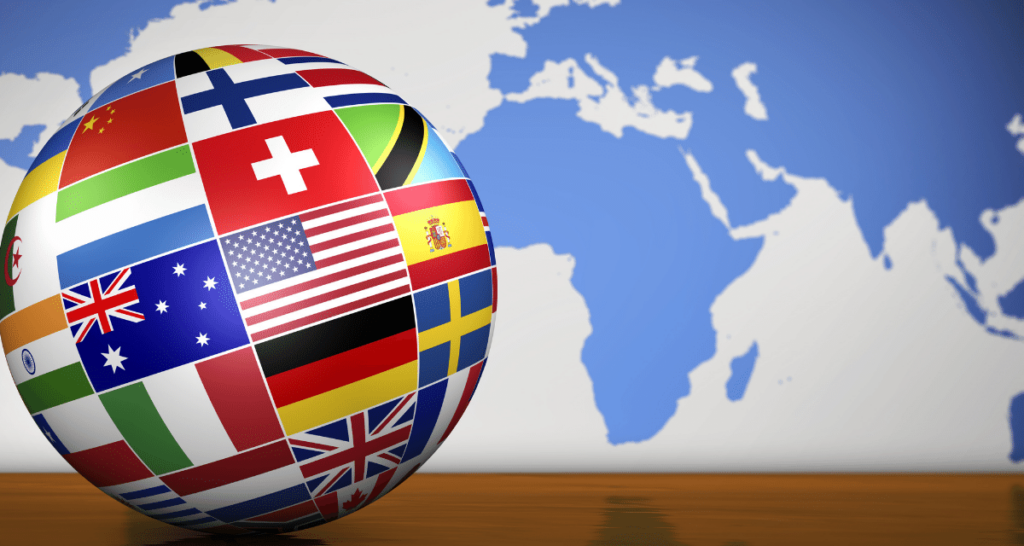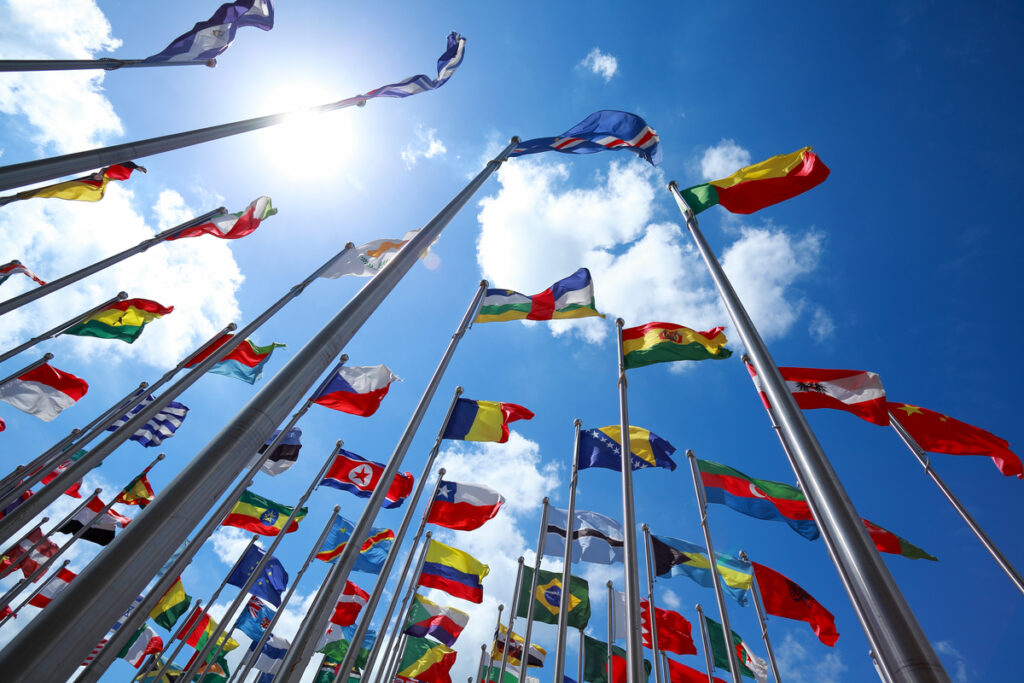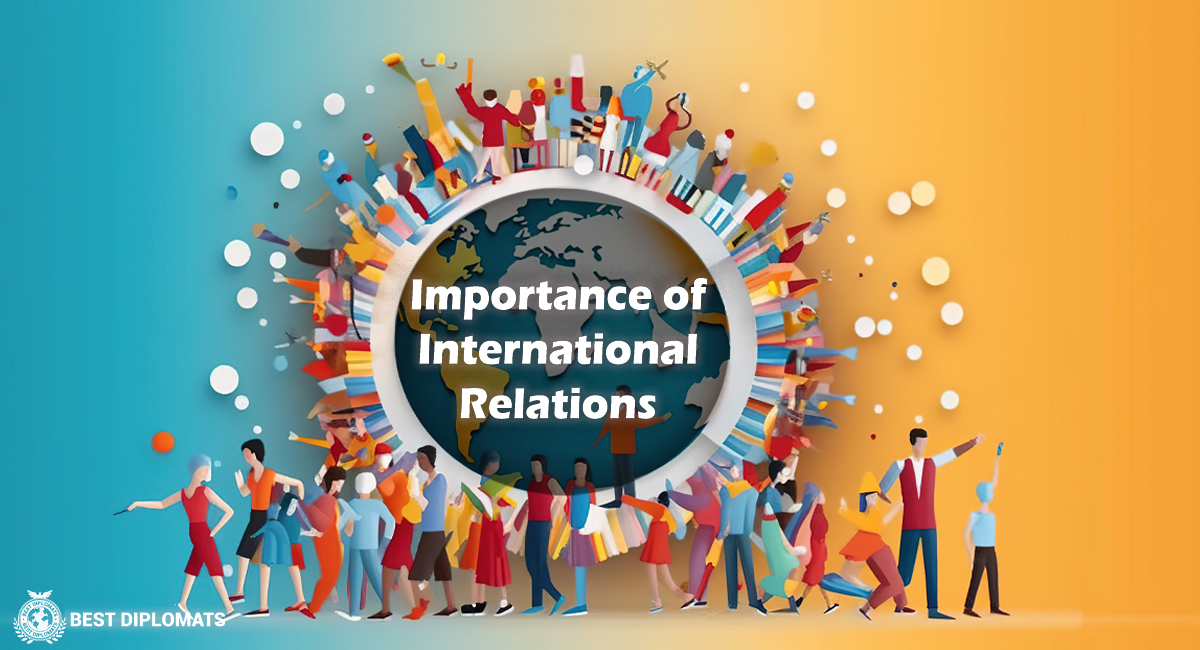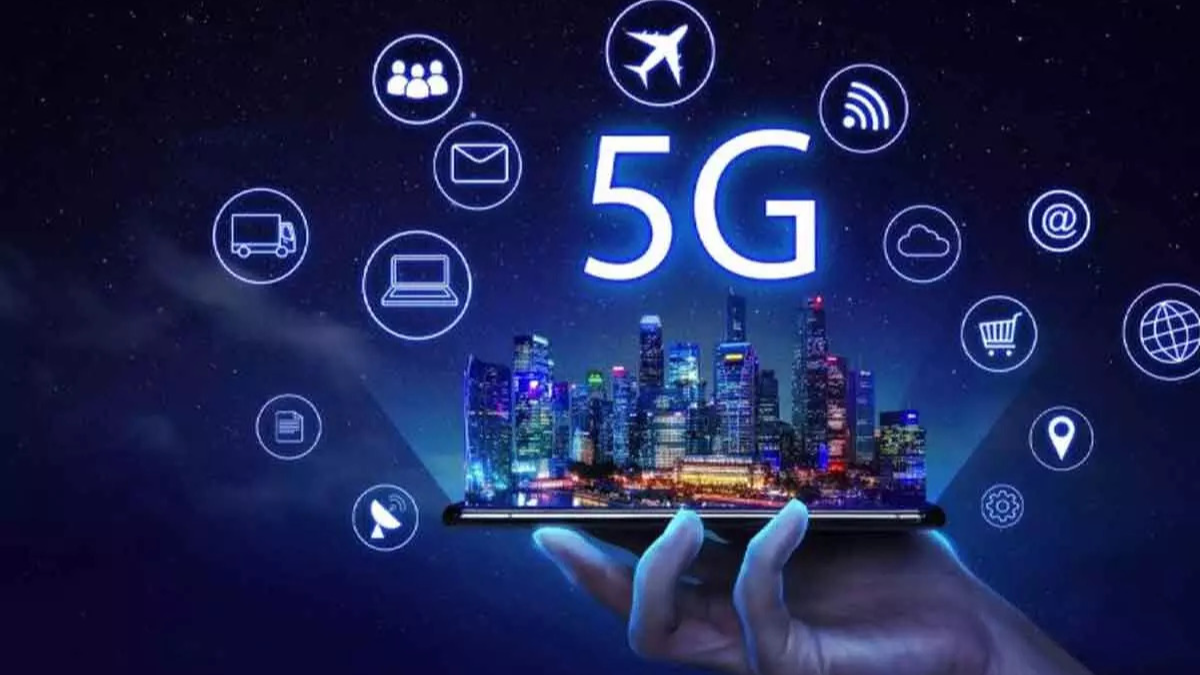International Relations
The field of international relations (IR) is more dynamic, linked, and complex than it has ever been in the twenty-first century. The way governments engage with one another on the international scene has changed significantly as a result of globalization, the emergence of new powers, shifting political ideologies, and technical improvements. The conventional notions of power, sovereignty, and diplomacy have broadened to encompass novel concerns including cyber threats, global pandemics, transnational terrorism, and climate change. In order to comprehend international relations in the twenty-first century, one must look at the major themes, figures, obstacles, and chances that influence the current state of world politics.

The Evolution of International Relations
The field of international relations came into being in the early 1900s as countries looked for solutions to avert further international hostilities in the wake of World War I. It changed over the years under the influence of several theoretical philosophies, such as constructivism, liberalism, and realism.

Realists see international relations as a zero-sum game where conflict is unavoidable and concentrate on states pursuing their goals of security and power. Realists stress that states will act in their own best interests to preserve their sovereignty since they are essentially interested in surviving.
Conversely, liberalism emphasizes state interdependence, international institutions, and collaboration. It makes the case that international institutions, trade, and diplomacy may all aid in reducing hostilities and advancing peace.
Constructivism emphasizes how social norms, identities, and ideas influence how the state behaves. Constructivists hold that human agency and cultural values can influence the international system, in contrast to realism and liberalism, which hold that the system is predetermined.
These theoretical frameworks offer fundamental insights into the study of international relations, but the fast evolving global environment of the twenty-first century calls for a more comprehensive view that takes into account new players, problems, and aspects.
Key Trends Shaping International Relations
International relations are being redefined in the twenty-first century by a number of significant trends. Multipolarity, globalization, technological innovation, and the emergence of non-state players are some of these developments.
1. The Emergence of New Powers and Multipolarity
The Cold War rivalry between the US and the USSR shaped the bipolar world order that dominated international relations for the majority of the 20th century. The globe changed to a unipolar structure with the United States as the leading global superpower following the fall of the Soviet Union in 1991.
But in the twenty-first century, multipolarity—the influence of several big countries on the international scene—has become the norm. The U.S.-centric world order is being challenged by emerging economies such as China, India, and Brazil, as well as regional powers like the European Union and Russia. There have been discussions regarding the emergence of a new great power rivalry between China and the United States as a result of China’s explosive economic growth, modernization of its armed forces, and expanding diplomatic presence.
Global governance becomes more difficult as a result of this shift towards multipolarity because power is more evenly distributed and no one state can unilaterally determine international policies. As these countries aim to increase their spheres of influence, it has also resulted in a resurgence of competition in domains including trade, technology, and military influence.
2. Internationalization and Mutual Reliance
International relations have been significantly impacted by globalization, the process by which nations have become more integrated through trade, finance, communication, and technology. Globalization has brought out previously unheard-of possibilities for technological development, cultural interchange, and economic expansion, but it has also brought forth brand-new difficulties.
Countries are now more susceptible to worldwide shocks like financial crises, supply chain interruptions, and pandemics as a result of their increased economic interdependence. Two instances of how events in one region of the world can have ripple effects throughout the worldwide system are the global financial crisis of 2008 and the COVID-19 epidemic. Comparably, global cooperation is needed to address environmental problems that cross national boundaries, such as pollution, deforestation, and climate change.
Globalization has also increased inequality both inside and across nations, which has sparked political opposition. Concerns about perceived loss of national sovereignty, cultural shift, and economic dislocation have propelled the growth of populist movements in Europe and the US. These movements have questioned the advantages of global integration and opposed established international organizations like the European Union.
3. Innovation in Technology and Cybersecurity
Modern technological developments have changed how states engage with one another, wage war, and communicate. Technological advancements in the fields of biotechnology, robotics, big data, and artificial intelligence (AI) have created both new opportunities and risks for international relations.
One of the most significant changes is the rise of cybersecurity as a central issue. State-sponsored and non-state cyberattacks have the potential to destroy political institutions, compromise vital infrastructure, and steal confidential data. For instance, the 2016 U.S. presidential election brought attention to the role that cyber intervention plays in democratic processes, igniting worries about how susceptible contemporary democracies are to cyberattacks.
Geopolitical rivalry has also increased as a result of the drive for technical superiority, especially between China and the United States. As they see these cutting-edge technologies as critical to both economic competitiveness and national security, both nations are making significant investments in 5G networks, quantum computing, and artificial intelligence. The arms race in technology has the potential to create new types of warfare and influence the future power dynamics.
4. Non-State Actors’ Role
States continue to be the dominant actors in international relations, but non-state entities including companies, NGOs, transnational networks, and international organizations are becoming more and more important. These players set international agendas, push for legislative changes, and supply services that nations might not be able to supply.
International organizations like the United Nations, the World Trade Organization (WTO), and the International Monetary Fund (IMF) help facilitate cooperation and manage global issues like peacekeeping, trade disputes, and financial stability.
Multinational corporations wield significant economic power, influencing international trade, investment, and regulatory standards. Companies like Google, Apple, and Amazon have global supply chains and market influence that rival the economic output of entire countries.
NGOs and activist groups advocate for human rights, environmental protection, and social justice, often pressuring governments to adopt progressive policies or improve governance.
Non-state actors can also pose threats to global security. Transnational terrorist organizations like ISIS and al-Qaeda operate across borders, challenging state sovereignty and requiring international cooperation to combat. Similarly, organized crime syndicates and drug cartels engage in illegal activities that undermine the rule of law and contribute to instability.
Major Challenges in International Relations
The global community has several challenges in the twenty-first century, which call for both conventional and novel approaches to security, governance, and diplomacy. The three most urgent issues are changing alliances, global health concerns, and climate change.
1. The changing climate
One of the biggest risks to international security in the twenty-first century is climate change. Increased temperatures, severe weather, and sea level rise are already forcing people to relocate, endangering their access to food and water, and intensifying conflicts over natural resources.
Climate change requires international cooperation, but it is still a sensitive topic in international diplomacy. A major step toward addressing climate change is the 2015 Paris Agreement, which seeks to keep global temperature to well below 2°C. However, getting legally binding agreements from every nation has proven challenging due to varied national interests, economic agendas, and political beliefs.
While nations like the US, EU, and China are reducing their carbon emissions, emerging economies contend that they require more time and funding in order to make the switch to renewable energy. In international relations, the conflict between environmental sustainability and development is still a major obstacle.
2. International Health Emergency
The significance of international collaboration in handling health emergencies was highlighted by the COVID-19 pandemic. The virus spread quickly across borders, exposing the weaknesses in globalized institutions and emphasizing the necessity for concerted worldwide action. Guidelines were crucially provided by organizations such as the World Health Organization (WHO), but the epidemic also revealed weaknesses in global governance.
Global health disparities and vaccine distribution have emerged as hot button issues, with wealthy countries obtaining a greater proportion of vaccines than developing ones. The epidemic has shown how closely linked national security and health security are, and how important it will be to concentrate on global health governance going forward.
3. Changing Allies and Uncertainty in the Geopolitical Sphere
The emergence of new powers and shifting alliances pose a threat to the post-World War II system, which is marked by American leadership and multilateral institutions. While new coalitions like the BRICS (Brazil, Russia, India, China, and South Africa) want to assert their influence in international affairs, established alliances like NATO struggle with internal conflicts.
A more unstable geopolitical climate has resulted from China’s territorial claims in the South China Sea, Russia’s annexation of Crimea in 2014, and the United States’ withdrawal from several multilateral agreements. The future of international stability is becoming less guaranteed as states reorient their interests.
Opportunities for Global Cooperation
Notwithstanding the obstacles, the 21st century offers chances for improved international cooperation. Emerging technologies, international cooperation, and the expanding power of civil society provide fresh approaches to urgent global problems. International institutions will need to alter to fulfill the needs of multilateral solutions to the problems of cybersecurity, climate change, and global health.
In addition, the emergence of social media, digital diplomacy, and international communication networks offers fresh forums for discussion and dispute settlement. There is a greater need than ever for collaborative and creative approaches to international relations as the world grows more interconnected.
Conclusion
A broad and nuanced perspective that considers the complexity of a multipolar world, the difficulties of globalization, and the influence of non-state players is necessary to comprehend international relations in the twenty-first century. Diplomacy, security, and collaboration are shaped by the interaction of new global concerns with established state-centric dynamics. Scholars and decision-makers in the field of international relations must continue to adjust and come up with fresh approaches to deal with the issues that are arising as the globe moves through a period of swift change and uncertainty.










Leave a Reply